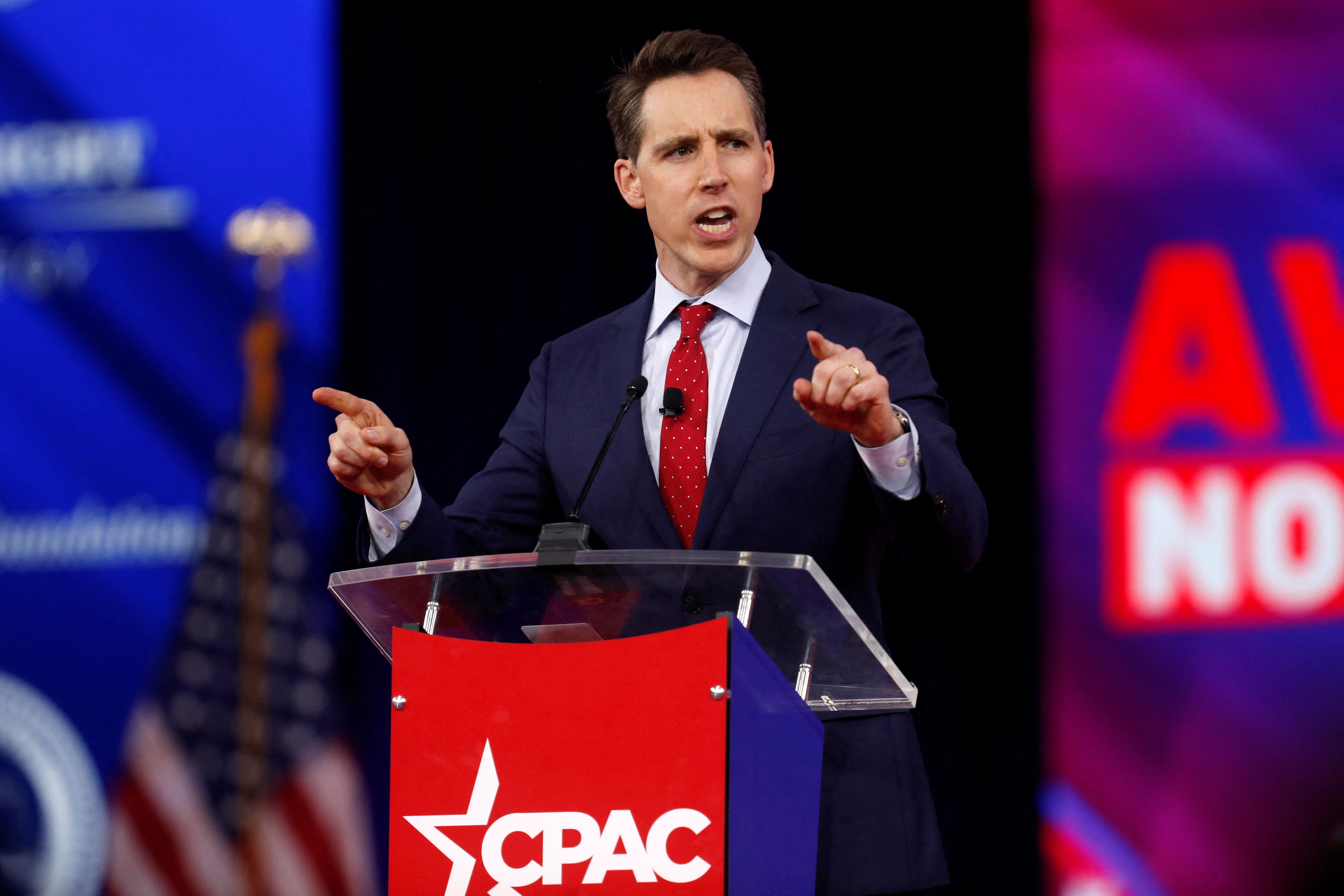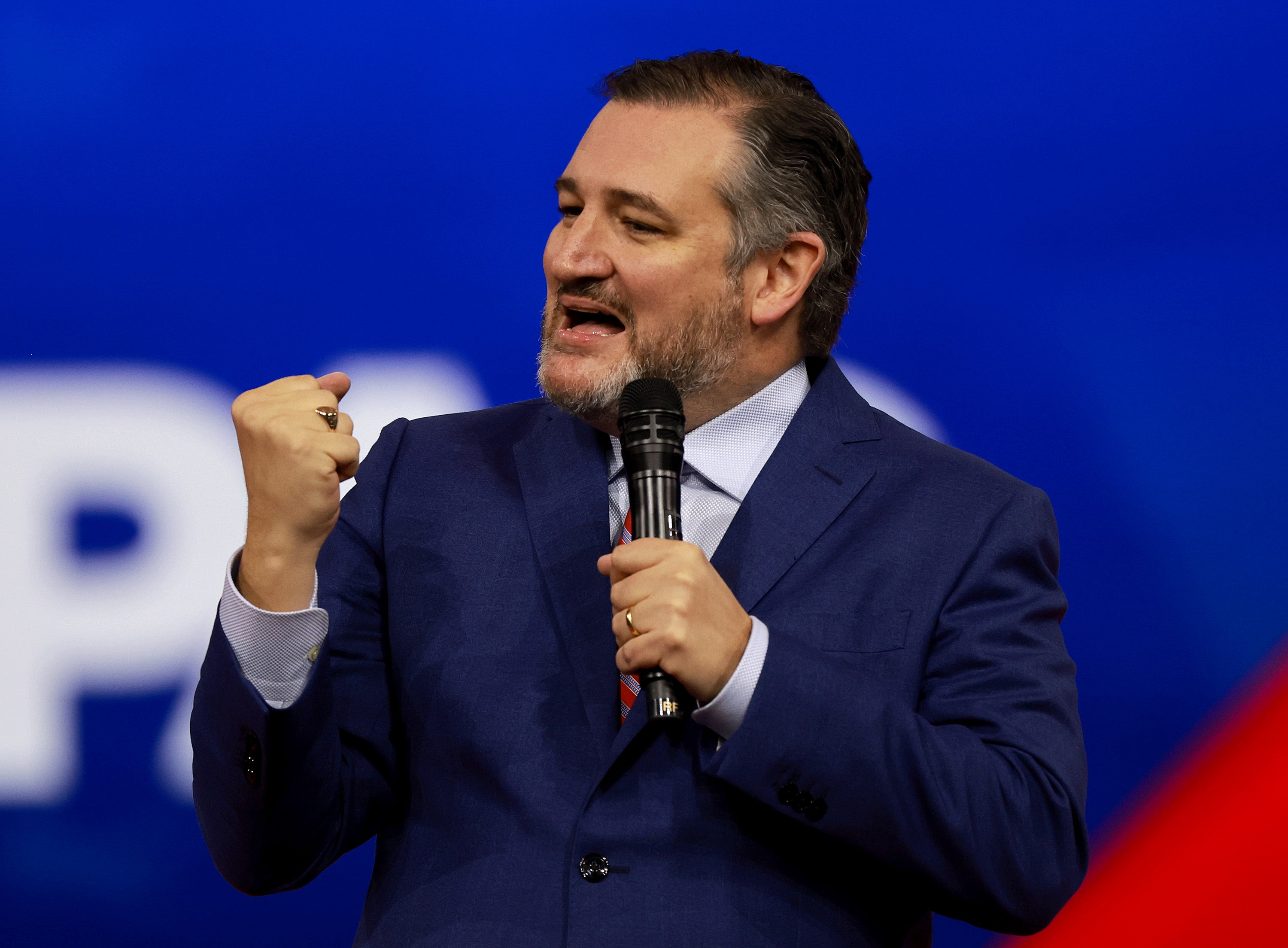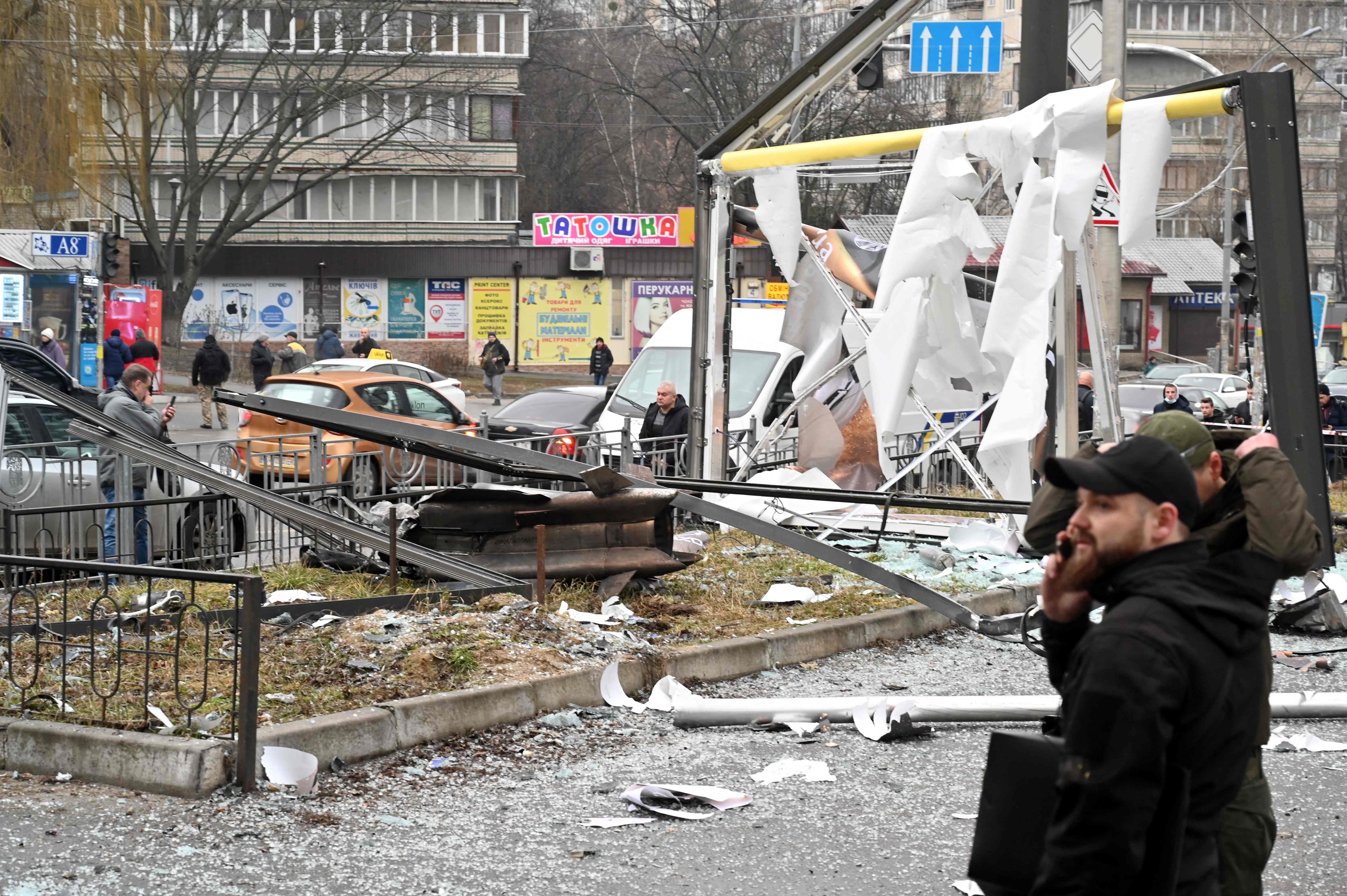Republicans at CPAC cast blame for Russia’s Ukraine invasion – but not on Vladimir Putin
Republicans are placing blame for Russia’s invasion of Ukraine on a certain commander in chief – but not the one who gave the order to attack, Andrew Feinberg writes


Your support helps us to tell the story
From reproductive rights to climate change to Big Tech, The Independent is on the ground when the story is developing. Whether it's investigating the financials of Elon Musk's pro-Trump PAC or producing our latest documentary, 'The A Word', which shines a light on the American women fighting for reproductive rights, we know how important it is to parse out the facts from the messaging.
At such a critical moment in US history, we need reporters on the ground. Your donation allows us to keep sending journalists to speak to both sides of the story.
The Independent is trusted by Americans across the entire political spectrum. And unlike many other quality news outlets, we choose not to lock Americans out of our reporting and analysis with paywalls. We believe quality journalism should be available to everyone, paid for by those who can afford it.
Your support makes all the difference.Russian president Vladimir Putin’s invasion of Ukraine could ignite the bloodiest conflict on European soil since the Second World War ended in 1945. But to hear top Republicans at the American Conservative Union’s annual confab tell the story of the last 24 hours, the order to invade was given by the president of the United States.
One by one, in remarks from the Conservative Political Action Conference stage and in comments to The Independent, current and former GOP officeholders credited the assault on Ukraine not to Mr Putin – who announced the invasion in a televised speech around 6am on Thursday in Moscow – but to Mr Biden, despite the American president’s lack of any authority or mechanism to pass orders to Russia’s armed forces.
According to a GOP source who spoke to The Independent on condition of anonymity, model talking points instructing Republican officeholders to blame Mr Biden for the invasion have been distributed though official GOP channels in recent days.
Instead of passing the word to support, even if reluctantly, the Biden administration’s efforts to hold Russia accountable for launching an unprovoked attack on its neighbour, party insiders have instead given a green light to characterise Russia’s aggression as a reaction to “weakness” on the part of Mr Biden.
One top Republican who followed such directions, Texas senator Ted Cruz, said the Russian invasion had come to pass because Mr Biden and his advisers “prioritised partisan politics over substance”.
As he arrived to speak at CPAC on Thursday, Mr Cruz, who serves on the Senate Foreign Relations Committee, told The Independent the attack, which ended nearly eight decades of peace on the continent, was “caused” by “the mistakes of the Biden administration”.

When asked to clarify whether he was explicitly blaming Mr Biden – not Mr Putin – for the Russian leader’s decision to launch an invasion of Ukraine, Mr Cruz replied: “Yes, I'm absolutely saying that.”
Another Republican senator, Mike Braun of Indiana, told The Independent the invasion had been brought about by Mr Biden’s resumption of negotiations with Iran meant to bring a halt to the Islamic republic’s nascent nuclear weapons programme, as well as the US exit from Afghanistan last year.
“I think there's been a projection of weakness that got us entangled in a way, based upon what I think others observed getting out of Afghanistan, and we're coming from behind. We're not actually addressing it in a preemptive way,” said Mr Braun, who added that he hopes Mr Biden will be able to “galvanise” allies to “pull the plug” on Russia’s economic links to the world.
Former Missouri governor Eric Greitens, who is currently a Senate candidate hoping to succeed retiring senator Roy Blunt, said in prepared remarks that Mr Biden’s “policy of weakness and chaos” led to “aggression like we're seeing in … Ukraine”, and suggested that the Biden administration’s approach to dealing with Mr Putin was part of an intentional plan to destroy the United States from within.

His potential senate colleague, Missouri senator Josh Hawley, was even more explicit in placing blame for the invasion on Mr Biden.
Mr Hawley, whose Thursday evening speaking slot closed the opening day CPAC programme, told the crowd of conservative activists that Mr Biden’s “weakness” led him to “shut down American energy production and green light Russian energy production”.
“He green lights Putin's pipeline and he shuts down American pipelines – is it any wonder that Vladimir Putin feels emboldened to do whatever the heck it is he wants to do?” said the Missouri senator, invoking an oft-used GOP talking point which posits that Mr Biden harmed US domestic energy production by cancelling a permit for the Keystone XL oil pipeline.
Republicans have pointed to the Keystone pipeline in order to cast Mr Biden as a hypocrite for heeding the German government’s request to waive GOP-passed sanctions on the Russo-German Nord Stream 2 gas pipeline last year. But the Keystone pipeline had nothing to do with US oil production and was not even an American pipeline, as it was owned by a Canadian company that hoped it would transport Canadian oil to US refineries, where it could be processed for export.

One former GOP office holder, ex-Georgia representative Doug Collins, also told The Independent that he believed Mr Putin had seen “a weakness” in Mr Biden shown by the Afghanistan withdrawal.
But Mr Collins, who left the House in 2021 after mounting an unsuccessful campaign for a Georgia Senate seat, did not go as far in blaming Mr Biden as his former colleagues.
Instead, he suggested the Biden administration had been so “traumatised” by the disastrous Afghanistan exit that it made them gun-shy on deploying sanctions against Russia prior to the invasion.
“We didn't have to send troops – we're not involved – but why were we waiting to see if Putin was gonna go? I'm in the military 20 years, you don't put that many people on the border without either moving them or … calling a truce,” he said. “We didn't even attempt that. And I think that's the part that frustrates me the most”.



Join our commenting forum
Join thought-provoking conversations, follow other Independent readers and see their replies
Comments